In the section below, search and filters appear first, followed by a list of faculty and staff. When a search term is entered into the search input field or a filter is selected, the list of faculty/staff automatically updates to match the search term and/or selected filters.
Filter Results
Faculty Staff List
Nothing matched the filters you selected.
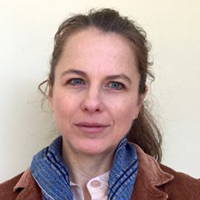
Monique Allewaert
Position title: Associate Professor, English
Email:
allewaert
Monique Allewaert’s research integrates literary analysis with political and environmental theory to contribute to an American studies that attends to the flows and structures of colonialism that shape the Western hemisphere. This hemispheric orientation of the field develops through sub- and supra-national frames and problematics in an effort to uncover understandings of personhood, community, and place that were etiolated by earlier organizations of the field. Her book Ariel’s Ecology (University of Minnesota, 2013) argues that in the American plantation zone human bodies were experienced and mythologized not as integrated political subjects but as bodies in parts.
Allewaert is currently working on a book tentatively titled Cut Up: Colonial Insectophilia and Enlightenment from Below, which explores an occluded colonial way of thinking the small and the partial. Focusing on insects as paradigmatic micro-scale entities, this book aims to show how Enlightenment epistemological and ontological claims shifted in cultural peripheries, giving rise to a minoritarian Enlightenment tradition that can be recovered as a potential for contemporary environmentalism, politics, and aesthetics.
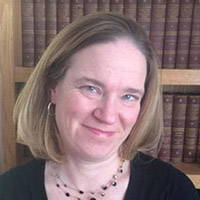
Anna Andrzejewski
Position title: Professor, Art History
Email:
avandrzejews
Anna Andrzejewski is a professor in the Department of Art History, where she teaches courses on the history of North American vernacular architecture and cultural landscapes. Anna is also an affiliate of the Department of Geography and the Program in Urban and Regional Planning, and she co-directs the buildings-landscapes-cultures PhD program (a collaboration with UW-Milwaukee).
Anna has published Building Power: Architecture and Surveillance in Victorian America (Tennessee, 2008) as well as many articles on postwar suburban architecture. She is currently finishing a book on the post World War II building industry; working with graduate students in art history and geography on a multi-year research project on the cultural landscape of the northern Great Plains; and beginning a project on the cultural landscape of retirement in south Florida.
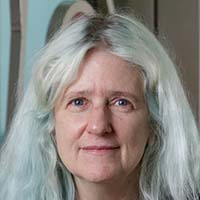
Jennifer Angus
Position title: Professor, Design Studies
Email:
jrangus
Jennifer Angus is a professor in the design studies department in the School of Human Ecology where she teaches textile design, specifically, everything to do with the dyeing and printing of cloth, including natural dyes. She is an artist recently described by Art Daily as “one of the top contemporary installation artists in the country.”
Jennifer creates some of the most provocative work most people have ever seen in an art museum setting. She composes patterns using hundreds of insects, placing them in arrangements that suggest wallpaper and textiles. Angus was one of nine leading contemporary artists selected for the landmark exhibition “Wonder” at the Smithsonian’s Renwick Gallery in 2015.
Jennifer has been the recipient of numerous awards including Canada Council, Ontario Arts Council and Wisconsin Arts Board grants. More recently she received the inaugural Forward Art Prize, an unrestricted award for outstanding women artists of Wisconsin. At the University of Wisconsin-Madison she has received annual grants from the Graduate School, as well as the Vilas Associate Award, the Emily Mead Baldwin-Bascom Professorship in the Creative Arts, the Romnes Fellowship, the UW Arts Institute Creative Arts Award, Rothermel Bascom Professorship, the Kellett Mid-Career Faculty Researcher Award, and, most recently, the Edna Wiechers Arts in Wisconsin Award.
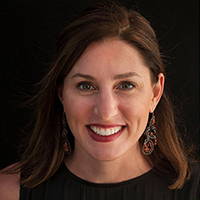
Emily Arthur
Position title: Associate Professor, Art
Email:
earthur
Emily Arthur sees nature as an interdependent living force rather than as the backdrop for human events. Land is living matter that holds specific meaning to a place. This is the nature-based perspective through which she conducts her research.
Her fine art practice is informed by a concern for the environment, displacement, exile and the return home from dislocation and separation. She seeks the unbroken relationship between modern culture and ancient lands which uses tradition and story to make sense of the enduring quest to understand our changing experience of home.
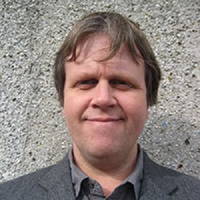
Ian Baird
Position title: Professor, Geography
Email:
ibaird
Ian Baird is a professor in the Department of Geography and director of the Center for Southeast Asian Studies. His interests are varied, and include the political ecology of hydropower dam development in the Mekong Region, economic land concessions in Laos and Cambodia, the concept of indigeneity in Asia, the history of political and military conflict in mainland Southeast Asia, and nature-society-politics in upland parts of mainland Southeast Asia, especially amongst the Brao and the Hmong.
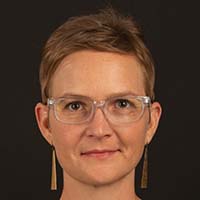
Anna Bierbrauer
Position title: Assistant Professor, Planning and Landscape Architecture
Email:
abierbrauer
Anna is a collaborator, teacher, and designer. Her research combines political ecology, environmental history, critical physical geography, and geospatial data into the landscape architecture and planning professions to understand current and historical equity issues related to urban landscapes. Anna’s recent dissertation, “Concealing, Forgetting, and Recalling Aridity: Denver’s Garden System, 1902-1980,” explored how urban vegetation expressed the political, economic, and social powers that controlled water infrastructure development to produce and reproduce racialized landscape typologies across the city of Denver.
Her landscape architecture and design projects have stretched from a mobile education station about stormwater to urban streetscape and green infrastructure designs, and from federal forest management policy to historical garden maintenance plans and residential gardens. She enjoys working collaboratively to further interdisciplinary dialogue about changing landscapes, our connection to the world around us, and long ignored histories.
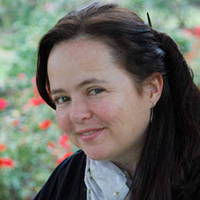
Beatriz Botero
Position title: Lecturer, Integrated Liberal Studies
Email:
blbotero
Beatriz L. Botero has a PhD in contemporary Hispanic American literature from the University of Wisconsin–Madison and a PhD in psychoanalysis in which she graduated summa cum laude from the Department of Psychology at the Autonomous University of Madrid Spain. She specializes in Latin American novels, psychoanalysis and cultural studies.
She is the author of Identidad Imaginada: Novelística Colombiana del Siglo XXI (Pliegos Editores, 2020) and editor of Women in Contemporary Latin American Novels: Psychoanalysis and Gender Violence (Palgrave Macmillan, 2018). Botero’s research places special emphasis on identity, the body, and social conflict. Also has worked on these issues in relation to contemporary visual art.
Botero is the winner of the 2023 CLASP Junior Faculty Teaching Award.
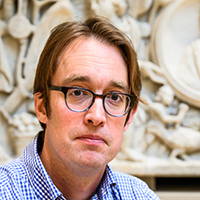
William Brockliss
Position title: Professor, Classical and Ancient Near Eastern Studies
Email:
brockliss
Will Brockliss is the director of CHE. He is also a professor in the Department of Classical and Ancient Near Eastern Studies, where he teaches courses on the Greeks, Romans, and the Natural Environment, and Ancient Monsters.
Will has published Homeric Imagery and the Natural Environment (Harvard/Center for Hellenic Studies 2019), as well as articles on landscapes of war, ecology in ancient texts, and monstrosity. He is currently writing a book on horror in ancient epic.
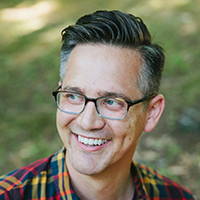
Joshua Calhoun
Position title: Associate Professor, English
Email:
joshua.calhoun
Joshua Calhoun is an associate professor in the Department of English whose most recent work explores the ecopoetic interplay between literary ideas and the physical forms they are made to take as sixteenth- and seventeenth-century texts.
In his first book, The Nature of the Page: Poetry, Papermaking, & Ecology in Renaissance England (forthcoming from the University of Pennsylvania Press), Calhoun argues that the flora, fauna, and mineralia from which a Renaissance text — or a clay tablet, or a birch bark map, or an iPhone — is made are legible, significant elements of its poetic form. His work draws on scholarly as well as journalistic training (as an intern at Outside Magazine), and his commitment to questions about conservation, land use, and wilderness are deeply informed by his experiences growing up in the Adirondacks.
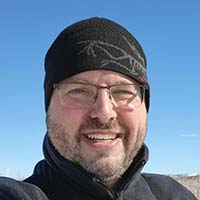
Eric Carson
Position title: Professor, Division of Extension; Geomorphologist, Wisconsin Geological and Natural History Survey
Email:
eric.carson
Eric Carson is a professor in the UW–Madison Division of Extension and a geomorphologist at the Wisconsin Geological and Natural History Survey. His research, teaching, and outreach center around the landscape-forming processes of rivers and glaciers over timescales ranging from hundreds to tens of millions of years. This background makes the never-glaciated Driftless Area of southwestern Wisconsin the ideal natural laboratory and venue for his thought.
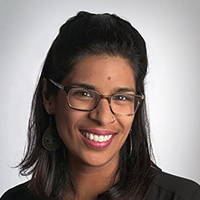
Nadia Chana
Position title: Assistant Professor, Ethnomusicology
Email:
nchana
Nadia Chana is an assistant professor of ethnomusicology at UW-Madison’s Mead Witter School of Music. Her recent dissertation — On Listening on Indigenous Land: Method, Context, Crisis — relied on a variety of methods, including multi-sited ethnographic fieldwork in northern Alberta and the California Bay Area, to consider how singing and listening become critical tools for building a felt relationship with a more-than-human world.
More generally, Nadia is interested in voice (audible and metaphoric), racialization, embodiment, practice-based ways of knowing, Indigenous-settler relations, Bay Area spirituality, nonhuman agency, and experimental and collaborative ethnography. While Nadia situates her work within music studies, thinkers in critical Indigenous studies and feminist science studies have often been her guiding stars.
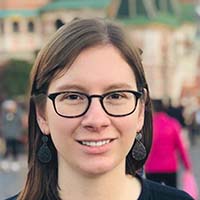
Gabrielle Cornish
Position title: Assistant Professor, Musicology
Email:
gcornish
Gabrielle Cornish is an assistant professor of musicology at the University of Wisconsin–Madison. Her research broadly considers sound and everyday life in the Soviet Union. In particular, her monograph-in-progress, Socialist Noise: Sound and Soviet Identity after Stalin, traces the intersections between music, technology, and the politics of socialist modernity during the Cold War. Her research has been supported by the Fulbright Program, the Association for Slavic, East European, and Eurasian Studies, the American Musicological Society, and the American Council of Learned Societies.
Her writing has appeared or is forthcoming in the Journal of Musicology, the Journal of the American Musicological Society, and Slavic review. A committed public scholar, she has bylines in Slate, The Washington Post, and The New York Times and has appeared as a guest to discuss Russian history, culture, and politics on NBC Nightly News, BBC World Service Television, and BBC Radio Newsday.

Ingrid Diran
Position title: Assistant Professor, English
Email:
diran
Ingrid Diran is an assistant professor of English and environmental humanities at UW-Madison whose teaching and research examine the relations between formations of capital and their corresponding deformations of life. Her book project examines the way in which ideas of ecological and economic limits have become entangled, and how this entanglement intersects with racial capitalism and its traditions of resistance.
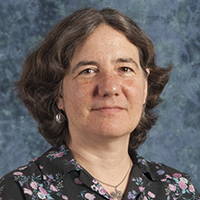
Eve Emshwiller
Position title: Associate Professor, Botany
Email:
emshwiller
Eve Emshwiller is an associate professor in the botany department. Her research interests center on the ethnobotany, systematics, evolution, and conservation of crop plants and their wild relatives. She studies agrobiodiversity, especially the domestication of crops, their evolution under human influence, and their conservation biology.
Current projects include research on the phylogenetics and morphological evolution of the genus Oxalis, the origins of polyploidy and domestication of the Andean tuber crop “oca,” Oxalis tuberosa, and the distribution of clones of oca in traditional Andean agriculture. Members of her lab also research manoomin (wild-rice) harvest traditions, evolution of feral wild mustard in Mexico under different traditional management practices, factors that affect the loss or maintenance of oca clonal diversity, organic acids in oca, and the origins of domestication in Chenopodium. She teaches UW-Madison’s first ethnobotany course and is now also teaching “Plants and Humans.”

Sarah Ensor
Position title: Assistant Professor, English
Email:
sarah.ensor
Sarah Ensor is an assistant professor of English at UW-Madison whose teaching and research focus on ecocriticism, queer studies, American literature, and various intersections thereof. She is currently finishing a book on queer environmental ethics in the absence of futurity, which reads queer sites of provisionality in order to trace how temporariness and (apparent) futurelessness can engender, rather than preclude, forms of commitment, community, intimacy, and care. Her second book, tentatively titled Queer Fallout: Nuclear Families and Other Toxic Kin, explores fallout as a material, relational, and methodological category that spans queer and environmental thought.
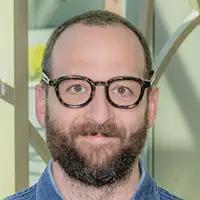
Mitch Frank
Position title: Design Studies
Email:
msfrank2
Mitch Frank is a clothing and fabric maker and an educator at The University of Wisconsin–Madison. He teaches in the textiles and fashion design program. A lifelong environmentalist, he works in craft because craft prioritizes materials and materials come from the environment. His work looks at native ecologies, appropriate technology, and environmental justice.

Anna Gade
Position title: Professor, Environmental Studies
Email:
amgade
Anna M. Gade is Vilas Distinguished Achievement Professor in the Nelson Institute for Environmental Studies, where she teaches courses in environmental humanities. She is an historian of religions who specializes in Islam and Southeast Asia. Her recent work in environmental humanities and ethics includes Muslim Environmentalisms: Religious and Social Foundations (Columbia University Press, 2019). She is currently completing a forthcoming book on environmental ethics in interdisciplinary environmental studies.
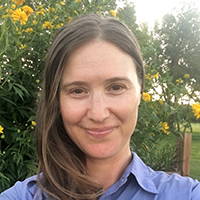
Ruth Goldstein
Position title: Assistant Professor, Gender and Women’s Studies
Email:
ruth.goldstein
Ruth Goldstein is an assistant professor in the gender and women’s studies department at UW-Madison. Her teaching and research interests converge along the lines of environmental racism, conceptions of gendered care for “Mother” Earth and what it means to decolonize ecological knowledge. She is working on a book — Life in Traffic: Women, Plants and Gold Along the Interoceanic Road — with UC Press.
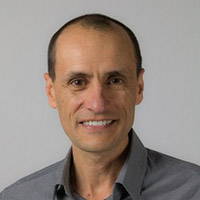
Claudio Gratton
Position title: Professor, Entomology
Email:
cgratton
Claudio Gratton’s research is broadly focused on understanding the relationship between land use and the conservation of insects both beneficial to people (pollinators and predators), and those that are pests of crops. In particular, his lab has been studying how agriculture influences the services that nature provides to people via the conservation of biodiversity.
Recently they have been exploring ways to make science a more integral part of the decision-making processes that ultimately shape what people do in our landscapes to affect not only crops, but also the environment and, ultimately, society more broadly.

Rachel Gurney
Position title: Faculty Associate, Community and Environmental Sociology
Dr. Rachel Gurney is an environmental sociologist with a background in journalism, environmental science, and sociology. Her current research focuses on climate adaptation, socio-political dimensions of climate change, and food insecurity. Rachel specializes in interdisciplinary research bridging social and natural sciences, teaching environmental sociology, and communicating research to the public. She has years of experience in the environmental field, including advocacy and outreach for national and international environmental organizations, teaching and research, and publishing and editing social science environmental research for a variety of audiences and publication platforms.
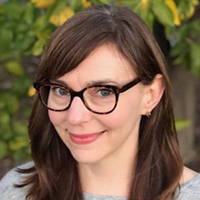
Elizabeth Hennessy
Position title: Associate Professor, History and Environmental Studies
Email:
ehennessy2
Elizabeth Hennessy is associate professor of world environmental history in the history department and the Nelson Institute for Environmental Studies. She is also affiliated with the Latin American, Caribbean, and Iberian Studies program (LACIS). Trained as a geographer, she works at the intersection of political ecology, science and technologies studies, animal studies, and environmental history.
Her main research project focuses on the most iconic species of the Galápagos Islands, giant tortoises, to trace intertwined transnational histories of capitalist development, evolutionary science, and conservation in the archipelago. She teaches courses on both global and Latin American environmental history as well as the role of animals in world history.
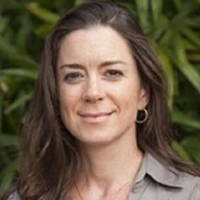
Leah Horowitz
Position title: Associate Professor, Environmental Studies and American Indian & Indigenous Studies
Email:
lhorowitz
As a critical cultural geographer, Leah Horowitz’s research focuses on conflicts over environmental governance, involving local communities, governments at various scales, corporations, non-governmental organizations, and grassroots groups. Ultimately, her work aims to help find ways for all these stakeholders to work together toward environmental conservation. She has addressed these research goals through studies of mining activities and biodiversity conservation, primarily in New Caledonia, Malaysia, and the U.S.
Specifically, her research contributes to our understanding of the importance of relationships and networks and the crucial role emotions play within these in enabling and shaping various modes of environmental governance as well as resistance to them.
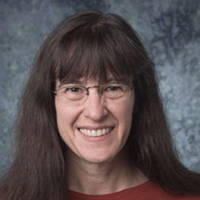
Sara Hotchkiss
Position title: Professor, Botany
Email:
shotchkiss
Sara Hotchkiss studies ecology on time scales that range from decades to tens of thousands of years, comparing observations of modern ecosystems with paleoecological data. Her projects include studies of ecosystem disturbance, climate change, and human-landscape interactions in the Great Lakes region and the Hawaiian Islands.
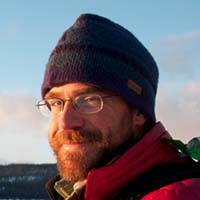
Robert Justin Hougham
Position title: Professor, Division of Extension
Email:
justin.hougham
Robert Justin Hougham's website
Dr. Justin Hougham (he/him/his) is a faculty member at the University of Wisconsin-Madison, where he supports the delivery of a wide range of science education topics to K-12 students, graduate students, and in-service teachers. Justin’s scholarship is in the areas of place-based pedagogies, STEM education, and education for sustainability. Justin has taught 17 different undergraduate and graduate courses as well as instructed over 1,000 days in the field. He continues to teach courses, clinics, and trainings that develop pedagogies in experiential education.
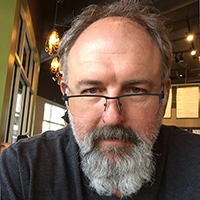
Randall Jackson
Position title: Professor, Agronomy
Email:
rdjackson
Randy Jackson’s research, teaching and engagement in grassland ecology explores how human management of agroecosystems influences their ability to build soils, retain nutrients, and enhance biodiversity, while providing for our wants and needs. He helps manage the 30-year-old Wisconsin Integrated Cropping Systems Trial (WICST), which compares the environmental and economic performance of crops typical of upper Midwest agriculture.
He also directs Grassland 2.0, a five-year project working toward transforming grain-based agriculture to grassland-based agriculture in the upper Midwest to help stabilize climate, reduce flooding, clean water, and support biodiversity, while rebuilding thriving, vital rural communities.

Olaf Jensen
Position title: Associate Professor, Integrative Biology and Center for Limnology
Email:
ojensen
Olaf Jensen is an associate professor at the University of Wisconsin–Madison’s Center for Limnology and Department of Integrative Biology. His research group studies fisheries as social-ecological systems with the ultimate goal of improving the scientific basis for sustainable management.
Dr. Jensen’s work relies on a combination of mathematical modeling, data synthesis and field studies in locations ranging from coastal ecosystems of Louisiana and New Jersey to the lakes and rivers of Mongolia and Wisconsin. He translates scientific research into policy advice as a member of several scientific advisory committees for fishery management and conservation organizations.
He received his PhD at the University of Wisconsin, followed by a David H. Smith Conservation Research Fellowship at the University of Washington.

Tomiko Jones
Position title: Assistant Professor, Art
Email:
ktjones
Tomiko Jones is an assistant professor at the University of Wisconsin–Madison Art Department. Jones’ photography and multidisciplinary installations explore social, cultural and geopolitical transitions, considering the twin crises of too much and too little in the age of climate change. Her current research, These Grand Places, is a socially engaged investigation of public land supported by a Grand Challenge Seed Grant through the School of Education. Her recent project Hatsubon is a memorial exhibition in photography, video and sculpture.
Jones was a resident artist at Museé Niépce, and a fellow at The Camargo Foundation, France. Jones received her MFA and certificate in museum studies from the University of Arizona, Tucson. She has held several full-time teaching appointments in New Mexico, California and Colorado, including visiting artist/professor positions.
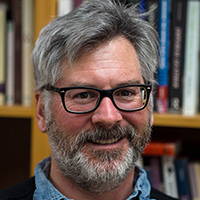
Richard Keller
Position title: Professor, Medical History and Bioethics
Email:
rckeller
Rick Keller’s research lies at the intersection of the history and ethnography of European and global health. He is the author of Fatal Isolation: The Devastating Paris Heat Wave of 2003 (Chicago, 2015) and Colonial Madness: Psychiatry in French North Africa (Chicago, 2007), and is co-editor of Unconscious Dominions: Psychoanalysis, Colonial Trauma, and Global Sovereignties (Duke, 2011), Enregistrer les morts, identifier les surmortalités: Une comparaison Angleterre, Etats-Unis et France (Presses de l’EHESP, 2010), and a special issue of South Atlantic Quarterly, “Life after Biopolitics” (2016).
He is currently at work on a global history of the environment, as well as a project on the links between disease ecology and changes in global consumer demand. Keller teaches courses on the historical and contemporary dimensions of European and international health.
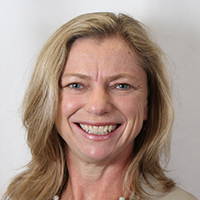
Alexia Kulwiec
Position title: Associate Professor, School for Workers
Email:
alexia.kulwiec
Alexia Kulwiec’s research and teaching focuses on federal and state labor and employment laws, and the processes whereby labor may address disparities and justice in the workplace. Her research includes laws applicable to agriculture and food systems and the potential development of improved agricultural business models; study of working conditions along the U.S. food chain; and the potential benefit of domestic fair trade principles in mid-sized agriculture. She examines the work environment of food and agricultural workers, as well as the impact of U.S. agricultural policy on the viability on small, sustainable farm operations.
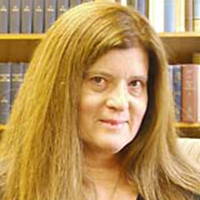
Maria Lepowsky
Position title: Professor, Anthropology
Email:
lepowsky
Maria Lepowsky specializes in cultural anthropology, anthropology of gender, historical anthropology, history of anthropology, environmental anthropology, exchange and ritual, medical/nutritional anthropology, psychological anthropology, Pacific Islands, California and the American West.
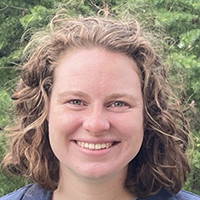
Reba Luiken
Position title: Director, Allen Centennial Gardens
Email:
rluiken
Reba Luiken (she/her/hers) is the director of Allen Centennial Gardens in the horticulture department at the University of Wisconsin-Madison, where she connects learners of all ages to the natural world through different ways of knowing. She completed a dual degree in plant biology and religious studies and a PhD in the history of science, technology, and medicine at the University of Minnesota. Her research focuses on the history of the plant sciences and public communication of science. She is currently working on a project about botany nuns who shared their understanding of plants, science, and God with generations of young women.
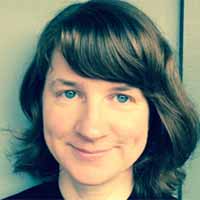
Noreen McAuliffe
Position title: Lecturer, English and Environmental Studies
Email:
nmcauliffe
Noreen McAuliffe is a lecturer in English at the University of Wisconsin-Madison and a program specialist at the Nelson Institute. She most recently was an assistant teaching professor at Rutgers University, where she taught courses in environmental writing and storytelling for scientists. Her academic interests include the environmental humanities, nonfiction science narratives, and multimedia science storytelling.
Her work has appeared in The Common, The Baltimore Review, and Electric Literature’s Recommended Reading. She’s been awarded the Alces Foundation Environmental Writing Fellowship, a NY State Writers Institute scholarship, a New Jersey State Council of the Arts Fellowship, and a Waitt Grant from the National Geographic Society.
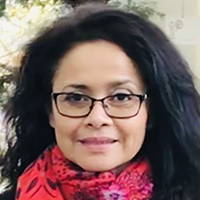
Sarli E. Mercado
Position title: Teaching Faculty, Spanish and Portuguese
Email:
smercado
Sarli E. Mercado, PhD, is the 4W director of Latin American Urban Cultural Connections (On Women Landscapes and the Arts). She has published her work on contemporary Spanish American poetry in the United States, Latin America, and Europe. Her current research centers on contemporary Southern Cone women writers and Latin American poetic and visual art expressions that link urban and non-urban environments to ecological thinking.
In the Department of Spanish and Portuguese, she teaches Spanish American literature, writing, cultural journalism, translation, and urban cultural studies. Dr. Mercado co-leads the 4W-International Women Collective translation Project (4W-WIT) and collaborates with the Museum of Environmental Sciences at the University of Guadalajara.
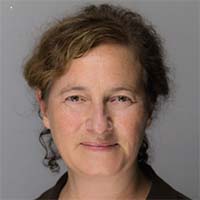
Michelle Miller
Position title: Senior Researcher, Center for Integrated Agricultural Systems
Email:
mmmille6
Michelle Miller is a participatory action researcher on food systems, working through the Center for Integrated Agricultural Systems at UW–Madison. She investigates ways to improve market access for farmers and food access using collaborative food logistics. Governance, communication, trust, and shared risk and rewards are at the heart of these efforts. She partners with NSF AI Institutes and brings governance issues to the institutes.
Miller serves on several working groups and committees, including the Transportation Research Board’s standing committee on Agriculture and Food Transportation, USDA NC1198 Agriculture of the Middle working group, and the Academic Staff Assembly.
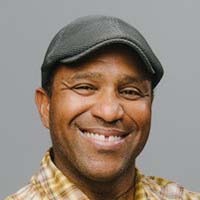
James Edward Mills
Position title: Honorary Fellow, Environmental Studies
Email:
jamesmills
James Edward Mills is an independent scholar with a specialty in outdoor recreation and environmental conservation as they intersect with issues of diversity, equity, and inclusion.
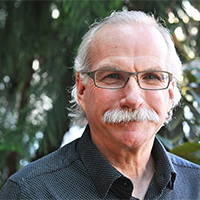
Gregg Mitman
Position title: Professor, History and Medical History and Bioethics
Email:
gmitman
Gregg Mitman is the Vilas Research and William Coleman Professor of History, Medical History, and Environmental Studies at the University of Wisconsin–Madison. His research and teaching interests span the history of science, medicine, and the environment in the United States and the world and include a commitment to environmental and social justice.
His most recent work has focused on a multimedia project — films, a book, and public history website — exploring the history and legacy of the Firestone Plantations Company in Liberia. He coproduced and codirected with Sarita Siegel two films, “In the Shadow of Ebola,” an intimate portrait of the Ebola outbreak in Liberia, and “The Land Beneath Our Feet,” a documentary on history, memory, and land rights in Liberia.
His newest book, “Empire of Rubber: Firestone’s Scramble for Land and Power in Liberia,” was published by The New Press in November 2021.
Mitman’s current research, for which he has received a €2.5 million European Research Council Advanced Grant, aims to discern the ecological, economic, political, and social forces at play that have simultaneously turned certain regions of West Africa into profitable sites of natural resource extraction, productive enclaves of biomedical research, and hot zones of pandemic threats.
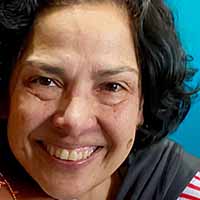
Maria Moreno
Position title: Teaching Faculty, Planning and Landscape Architecture
Email:
maria.moreno
Dr. Maria Moreno (she/her/hers) teaches restoration education courses to undergraduates and first-year interest group (FIG) courses on Indigenous arts and citizenship, restoration, and resilience in Puerto Rico.
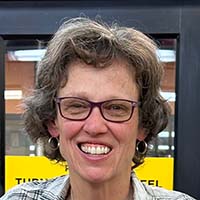
Margaret Murphy
Position title: Instructional Design Program Manager, Facilities Planning and Management
Email:
msmurphy4
Margaret Murphy is a dedicated learning and development manager at the Charter Street Heating and Cooling Plant at UW–Madison. With a background in humanities, Margaret brings a unique perspective to her role, infusing her passion for critical thinking and communication into training programs aimed at enhancing employee skills and knowledge.
Beyond her professional endeavors, Margaret is deeply invested in environmental stewardship and sustainability, actively seeking ways to integrate eco-friendly practices into her work and personal life. Committed to fostering a culture of learning and sustainability, Margaret continually strives to empower individuals and organizations to make positive contributions to both their communities and the planet.
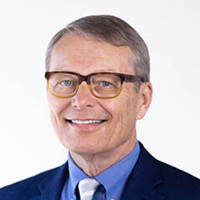
John Nelson
Position title: Adjunct Professor, Civil and Environmental Engineering
Email:
jsnelson4
John Nelson is an adjunct professor of civil and environmental engineering at UW–Madison and managing director for Global Infrastructure Asset Management LLC, an asset management firm specializing in sustainable infrastructure investments.
Previously, Nelson was CEO of Affiliated Engineers, and under his leadership, the engineering firm became nationally recognized for designing dynamic building systems and infrastructure for large and complicated projects.
He serves on a number of boards, including the Nelson Institute (as a member emeritus), CASB in the School of Business, and the UW Foundation. His training includes an MS in mechanical engineering from UW–Madison.
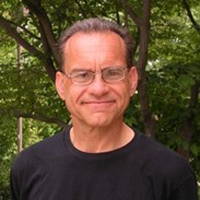
Larry Nesper
Position title: Professor, Anthropology
Email:
lnesper
Larry Nesper is a professor of anthropology and American Indian studies, and has been at UW-Madison since 2002. He is the author of The Walleye War: The Struggle for Ojibwe Spearfishing and Treaty Rights (University of Nebraska Press, 2002). He has worked as a consultant for the Great Lakes Indian Fish and Wildlife Commission, the Bad River and Lac du Flambeau Tribe.
Current research explores the development of tribal courts in Wisconsin and state court-tribal court relations. He teaches courses in American Indian ethnography and ethnohistory, Indians of the Western Great Lakes, anthropology of law, and American Indian social and political movements.
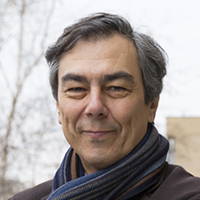
Mario Ortiz-Robles
Position title: Professor, English
Email:
mortizrobles
Mario Ortiz-Robles is the Nancy C. Hoefs and Mellon-Morgridge Professor of English and Animal Studies. His teaching and research interests are situated at the intersection of 19th-century literature, literary theory, and animal studies.
He is currently at work on a book-length project that explores the long arc of literary naturalism in Britain and France to determine the extent to which the appropriation of nature as a literary trope conditions, or “naturalizes,” our fraught relation to animals.
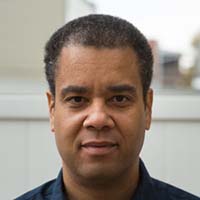
Tim Portlock
Position title: Professor, Environmental Studies and Art
Tim Portlock’s current work engages with urban space, the environment, and the American landscape tradition, combining visual effects software and the visual conventions of 19th-century American painting to creatively simulate contemporary landscapes. In recent years, his large format print images have depicted imagined landscapes populated with the empty buildings from real world. Portlock has exhibited at the Philadelphia Museum of Art, the Institute of Contemporary art in Philadelphia, the St Louis Museum of Art, the Tate Modern as a member of the artist collective Vox Populi, and in other venues. He is a 2011 recipient of the Pew Fellowship.
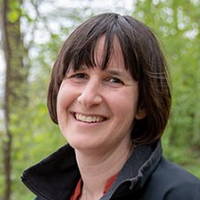
Adena Rissman
Position title: Professor, Forest and Wildlife Ecology
Email:
arrissman
Adena Rissman is a professor in the Department of Forest and Wildlife Ecology, and an affiliate of the Nelson Institute for Environmental Studies, the agroecology program, the Land Tenure Center, the La Follette Institute for Public Affairs, and the Holtz Center for Science and Technology Studies. Her research investigates the relationships between society and environment, focusing on conservation, ecosystem management, and resource use.
She examines forests, wildlife, rangelands, agriculture, and water resources both locally and nationally, through participatory research approaches. Her research centers around three themes:
- Natural resource policy design, implementation, and evaluation
- Ecological outcomes of resource policy and conservation strategies
- Social and legal adaptation to environmental change
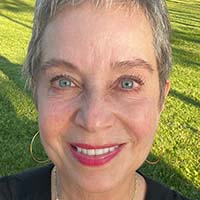
Sissel Schroeder
Position title: Professor, Anthropology
Email:
sissel.schroeder
Sissel Schroeder is a professor of archaeology and the chair of the Department of Anthropology and an affiliate of the Nelson Institute for Environmental Studies, the American Indian Studies Program, and the Material Culture Studies Program.
Her current research is focused on the role of ethnic diversity (as identified from distinctive archaeological materials, particularly architecture and ceramics) in the formation and dissolution of communities and polities in the ancient Mississippian (c. A.D. 1000-1500) societies of the midwestern and southeastern United States.
Her multi-scalar approach to these issues draws on aspects of agency theory and environmentalism and highlights how the places where ancient people chose to settle reflect the changing constraints and opportunities presented by the spatial distribution of resources, potential for establishing gardens and agricultural fields, availability of habitable land, the peaceful or bellicose nature of relationships with other peoples living nearby, and perceptions and traditions about the landscape that may include the construction of earthen mounds.
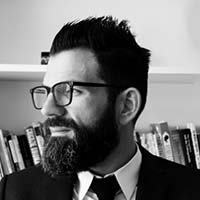
Kirk Sides
Position title: Assistant Professor, English
Email:
ksides
Kirk Sides is an assistant professor in English and an affiliate professor of African cultural studies at the University of Wisconsin–Madison. A specialist in African environmental literatures and humanities, his current book manuscript, Environmental Entanglements: African Literature’s Ecological Imaginary, charts a long history of ecological thinking in African literatures from the start of twentieth century up to the present. He also facilitates a series of workshops called “Anthropocene Storytelling,” which employ speculative fiction and poetry as pedagogical and creative methods for thinking about planetary change. Kirk has been a visiting research scholar in the Humanities Institute at The Pennsylvania State University, as well as a research fellow at the Rachel Carson Center for Environment and Society in Munich.
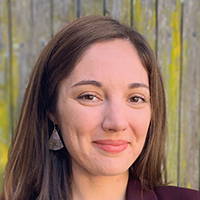
Jen Rose Smith
Position title: Assistant Professor, Geography and American Indian Studies
Email:
jrsmith39
Jen Rose Smith (dAXunhyuu [Eyak, Alaska Native]) is an assistant professor in the geography department and American Indian Studies Program. She studies coloniality, race, and indigeneity as read through aesthetic and literary contributions, archival evidences, and experiential embodied knowledges with a particular interest in ice-geographies.

James Spartz
Position title: Writer, Institute for Research on Poverty
Email:
jspartz
James Spartz (he/him/his) is a writer and editor with the Institute for Research on Poverty. He works at the intersections of economic inequality, poverty, communication, and community well-being as well as having a strong interest in decolonial place-based humanities scholarship and praxis.
James spent several years as a professor of environmental communication at a rural, private, environmental college in Maine where he developed and taught courses including Environmental Communication, Forests and Society, Environmental Writing, and Ecomusicology and Place.
He received an MA from the UW-Madison School of Journalism and Mass Communication and PhD through the UW-Madison Department of Life Sciences Communication.
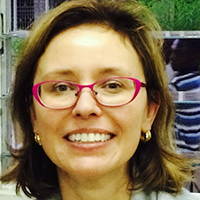
Amy Stambach
Position title: Professor, Anthropology
Email:
amy.stambach
Amy Stambach is the Vilas Distinguished Achievement Professor in the Department of Anthropology and a faculty affiliate of the African Studies Program. Her current book project examines the history of land tenure and cultural politics on Mount Kilimanjaro. She has worked for many years in East Africa and has served as external commentator to UNESCO and the United Nations Institute of Statistics.
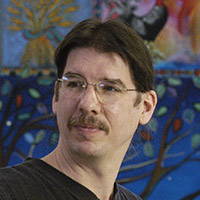
Randy Stoecker
Position title: Professor, Community and Environmental Sociology
Email:
rstoecker
Randy Stoecker is a professor in the Department of Community and Environmental Sociology at the University of Wisconsin-Madison with an affiliate appointment in the University of Wisconsin Cooperative Extension Center for Community and Economic Development. He has a PhD in sociology from the University of Minnesota, and an MS in counseling from the University of Wisconsin-Whitewater.
He conducts trainings and speaks frequently on community organizing and development, participatory action research/evaluation, higher education community engagement strategies, and community information technology. He has facilitated numerous participatory action research projects, community technology projects, and empowerment evaluation processes with community development corporations, community-based leadership education programs, community organizing groups, and other non-profits across a wide range of issues and places, including hip-hop.
Randy has written extensively on community organizing and development and higher education engagement with community. In his spare time he is practicing to become an electric guitar luthier and writing a rock opera. He lives in Madison, Wisconsin, with his life partner of 40 years and a standard poodle of eight years who refuses to act his age.
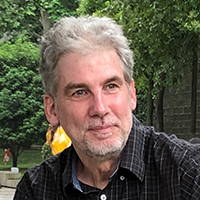
Matt Turner
Position title: Professor, Geography
Email:
mturner2
Matt Turner’s research is concerned with the relationship among institutions, communities and environment in the Sudano-Sahelian region of West Africa. He has written extensively on the the variation in climate change vulnerability and food security among different social groups; environmental governance in colonial and post-colonial contexts, customary land tenure institutions, pastoral mobility and its institutional implications, soil quality variation and its social implications, land-use and land cover change, resource-related conflict, and the knowledge politics of environmental assessment.